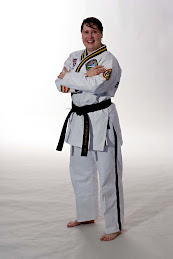Greetings!
This post is dedicated to Maria.
She asks:
Thanks for the great tips! I walked for the Susan B. Komen 3 Days last year and I started my training just a couple of months before the event -- not enough time to prepare me for walking the full 60 miles, and I got injured along the way. I hope this year, will be a better performance on my part. I tended to train twice a week by walking 10 miles on my own. Do you know of any good books for training walkers who are about 50lbs too heavy?
Let's begin with low cost means by beginning with assumptions --
a) Your injuries are healed
b) A medical assessment is adviseable before the 2nd walk to examine your legs
c) Some people's bones are not made for distance walking or running, particularly if they've led sedentary lives. There's nothing wrong with this lifesyle. People who are consistently active are made differently because they've had years to adapt.
If you could examine my legs under X-Ray, you'd see my bones are thick along the long bones. I've been very active all my life but I've been involved in the martial arts since I was 18. Now I'm 49 and I keep the martial arts forms going strong because they offer many health benefits. However, when students of all ages walked through my school doors, I offered an intial assessment. People young and older have to build up their activity over time. So, I have a system that's used to many different exercises.
A 60-mile walk is big!
Here's What You Can Do Today:
1) Consider strongly reassessing Year 2 goals -- spare yourself unnecessary injury because you only have one body. You want it to last a lifetime, said kindly! And.., we love your smile!
2) You may consider walking 20-30 miles in this year's event, as a more realistic goal but you could work up to a new level by Year 3, 4, and 5. That kind of a goal will take you into an entirely new human body.
3) Maintaining or increasing your strength, endurance, balance, and flexibility are the key factors to staying healthy. Walking builds your strength and endurance, which contributes to better balance.
4) You can improve your flexibility with stretching exercises designed specifically for inactive adults, starting slowly each day, holding poses, then over the coming weeks and months, increasing stretching levels. By striving to increase all four factors, you not only lower your risk of injury but you'll slow the aging process in your joints and muscles.
5) For some, walking a full hour or even 30-minutes a day may be difficult. I suggest walking a flexible schedule incorporating different exercises you may encounter in a 60-mile walk:
park farther away from the walk-in entrance at work
climb stairs (cut out elevators if knees allow)
reduce sugar intake
increase protein intake whenever you're hungry
walk on Friday evenings and Saturdays
walk Sunday if your body is still happy
then walk a longer distance on Wednesday.
The key is to get the time in "spent walking" (not entirely on a level, level surface), even if it's not all at once. If you can stay off concrete, I recommend that strategy but I'm willing to guess your actual walk will be on the streets.
I'll research books and let you know but we can start you out on my free ebook, titled, "Salad Recipes". Enter your name in the right-hand column to automatically download this book. It will begin to address excess weight humans commonly accumulate in a year's time.
As your health improves -- combine your walks for longer intervals over time, as you advance. Again, common sense goes a long way. Your body will always tell youh how it feels.
When you're tired -- schedule training on your calendar to make it happen.
When you're feeling strain -- rest. Try to include new challenges such as climbing a hill, extending the time you walk, increasing your walking pace, or adding an additional day of walking over time.
If you want more specifics, ask more Q's and we'll tackle more. There are many books out there but no 2 books are created equal.
I recommend a detox for starters.
See other article post on that topic. It gives you specifics, by name.
To Your Walking Success!
Barbara
Wednesday, May 7, 2008
Subscribe to:
Comments (Atom)

